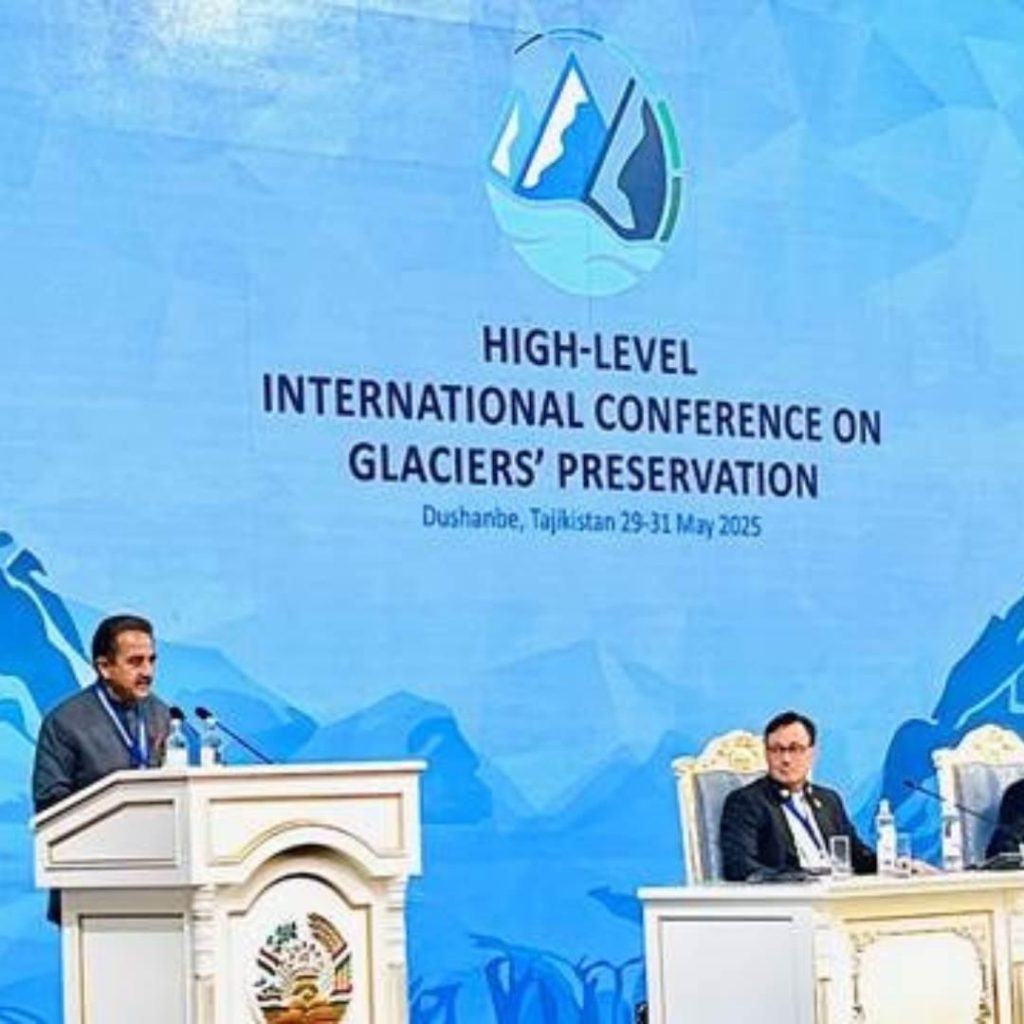
India Reaffirms Commitment to Glacier Preservation at Global Meet
The world is facing an unprecedented climate crisis, with rising temperatures and melting glaciers posing a significant threat to the global water cycle and climate stability. In a bid to address this pressing issue, India recently reaffirmed its commitment to glacier preservation at the Glaciers’ Preservation Conference held in Dushanbe, Tajikistan. Union Minister of State for Environment, Forest, and Climate Change, Kirti Vardhan Singh, represented India at the conference and emphasized the urgent need to protect glaciers, which are vital for both water and climate.
Speaking at the conference, Singh highlighted India’s efforts to address the issue of glacier melting and its impact on the environment. He stated that India is committed to protecting its glaciers, which are an integral part of its natural heritage, and emphasized the need for global cooperation to address this pressing issue. Singh also stressed the importance of research, technology sharing, and international cooperation to safeguard glaciers and mitigate the effects of climate change.
India’s efforts to preserve glaciers are multifaceted and include glacier monitoring, early warning systems, and climate action under the Paris Agreement. The country has also launched several initiatives to promote sustainable development and reduce its carbon footprint. For instance, India has set a target of generating 40% of its electricity from non-fossil fuels by 2030 and has made significant progress in increasing its renewable energy capacity.
India’s commitment to glacier preservation is not limited to its domestic efforts. The country is also actively engaged in international efforts to address the issue of glacier melting and its impact on the global environment. Singh’s address at the Glaciers’ Preservation Conference was a testament to India’s commitment to global cooperation and its willingness to work with other countries to address this pressing issue.
The conference, which was attended by representatives from over 20 countries, aimed to raise awareness about the importance of glaciers and the urgent need to preserve them. The event provided a platform for experts and policymakers to share their experiences and best practices in glacier preservation and to discuss ways to address the challenges posed by glacier melting.
India’s efforts to preserve glaciers are not only crucial for its own environment but also have significant implications for the global community. Glaciers play a vital role in regulating the Earth’s climate and are a vital source of freshwater. They also support a wide range of ecosystems and provide habitat for many species of plants and animals.
The melting of glaciers has serious consequences for the environment and human societies. Rising sea levels and changes in precipitation patterns can lead to more frequent and severe weather events, such as floods and droughts. This can have devastating consequences for communities that are dependent on glaciers for their livelihoods and well-being.
In conclusion, India’s commitment to glacier preservation is a critical step towards addressing the pressing issue of climate change. The country’s efforts to monitor glaciers, develop early warning systems, and promote sustainable development are commendable and demonstrate its commitment to preserving the environment for future generations. India’s willingness to engage in international cooperation and share its expertise with other countries is also a significant step forward in addressing this global challenge.
As the world continues to grapple with the consequences of climate change, it is essential that countries like India continue to prioritize glacier preservation and work together to address this pressing issue. Only through collective action and cooperation can we hope to mitigate the effects of climate change and ensure a sustainable future for all.
Source: https://www.refersms.com/india-backs-glacier-protection/






